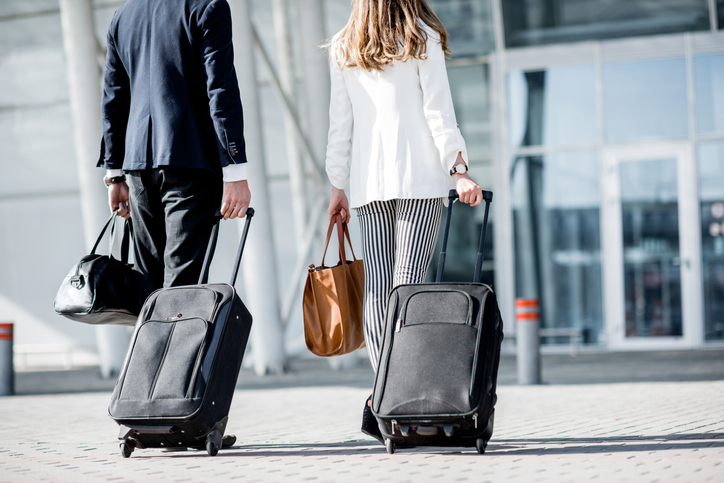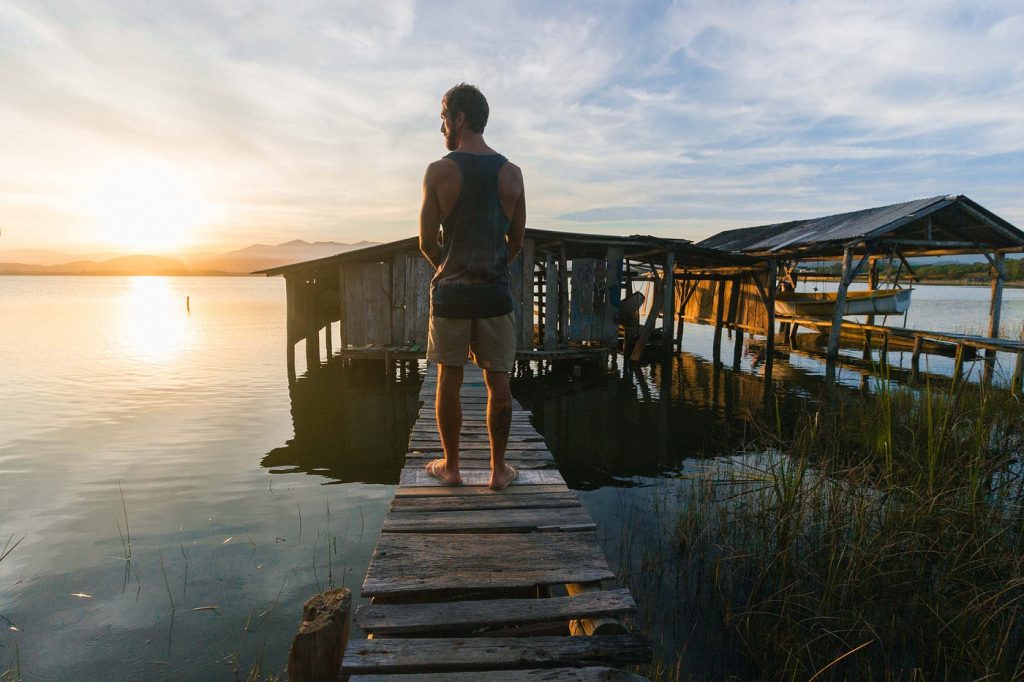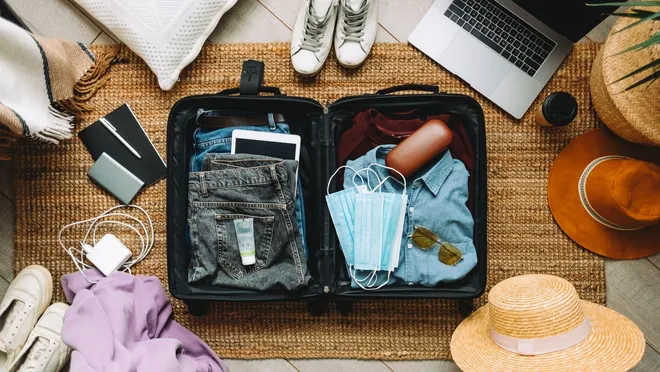What Are The Things You Should Avoid When Traveling

When you go on a trip, you should know what not to do so that your trip goes smoothly and you enjoy it. Here are some important things to think about:
- Credit card use: Credit cards can be useful, but it’s important to know how they work and be aware of any fees or other costs that might be secret.
- Use of debit cards: If you want to avoid getting into debt while travelling, use a debit card instead of a credit card. You have more power over your money when you use a debit card to buy things and get cash.
- Going to Islamic countries: If you want to go to an Islamic country, learn about the rules and customs that people there follow. Respectful dress rules, food limits, and cultural norms should be followed to make sure the experience is good and lasting.
- Finding out about local laws and customs: No matter where you go, you need to find out about and follow the local laws and customs. This will help you deal with any cultural differences that might come up and keep you from offending anyone by accident.
- Values and beliefs that are different: When you travel, value and honour different values and beliefs. When you talk to locals, keep an open mind and don’t force your culture beliefs on them. By being sensitive to other cultures, you can make friends and make experiences that will last a lifetime.
If you know about these things and take the right steps, you can avoid most of the problems that could happen and have a more interesting and enjoyable trip.
Credit Card Use
Credit cards can be helpful for travellers because they are safe and easy to use. But it’s important to know how credit card companies work and be aware of any fees or other costs that might be hidden. Before you leave on your trip, you should look into and compare the different credit card choices. This includes looking at their foreign transaction fees and exchange rates. Know if there are any extra fees for cash loans or taking money out of an ATM. Also, you should let your credit card company know about your trip so that they don’t hold your cards or close your accounts without warning. You can use your credit card wisely and have a stress-free trip if you are aware and take action.

Understanding Credit Card Companies
When you travel, knowing how credit card companies work can make your experience much better. A lot of people don’t realise how important it is to know how credit card fees can affect their trip costs. It is very important to find a credit card that doesn’t charge fees for foreign transactions if you want to avoid extra costs.
It’s easy for credit card fees to add up, especially if you use your card abroad. When you buy something outside of your home country, you have to pay a fee called a foreign transaction fee. The amount of these fees can be anywhere from 1% to 3% of the whole buy price. During a trip, these fees can add up to a big chunk of your total costs.
To cut down on these costs, you might want to look for a credit card that doesn’t charge any fees for foreign transactions. This will let you buy things in other countries without having to pay extra. There are a lot of credit card companies that give this perk, so you should look into your choices.
Chase Sapphire Preferred, Capital One Venture Rewards, and Discover It Miles are some of the best credit cards for people in the U.S. that don’t charge fees for foreign transactions. Not from the U.S. Credit cards like the HSBC Premier World Elite Mastercard, the American Express Platinum, and the Citibank Premier Miles Card are options for people who live in the United States.
You can save a lot of money on your trips if you know about credit card companies and their fees. Make sure you do your study and pick the best credit card for your needs. This will help you travel easily and cheaply.
Using a Debit Card Instead of a Credit Card
There are some pros and cons to using a debit card instead of a credit card when you are travelling. One of the best things about using a debit card is that it can help travellers stay away from fees and spending too much. A debit card is different from a credit card because it only lets you spend the money that is in your bank account. This keeps you from getting into debt or paying interest. This can be especially helpful for travellers on a tight budget who want to keep a close eye on their spending.
But it’s important to keep in mind that debit cards might not be as safe against scams as credit cards. If you lose or have your debit card stolen, it may be harder to fight charges you didn’t make or get your money back. Also, not all stores and restaurants accept debit cards, especially in countries that are far away or that use cash. Having a backup plan is a good idea. For example, you could take cash or a credit card with you.
When picking a debit card for travel, things like ATM fees, foreign transaction fees, and the number of countries that accept it should be taken into account. It is important to know ahead of time what these fees are for using ATMs abroad or buying things in foreign currencies. Also, check to see if your debit card can be used in many countries or if it works with global payment networks like Visa or Mastercard.
Take the time to learn about and compare different debit cards before you choose the best one for your trip needs. Look for debit cards with low or no fees for using an ATM or making a purchase in a foreign country. They should also have extra safety features like tracking for scams and purchase protection. Talk to your bank or other financial company to find out what the rules are for using your debit card outside of the country. You can have an easy and cheap way to pay for things while travelling if you pick the right bank card and know what its limits are.
Islamic Countries
If you want to have a polite and fun time when you visit Islamic countries, you should know about their culture rules and customs. There are Islamic countries, which are also called Muslim-majority countries, all over the world. These countries have their own rituals, customs, and social rules that are shaped by Islam. When you go to these countries, you should know about and follow their faith views, dress code, and social norms. Not doing so could cause confusion and make things uncomfortable, and it could also be seen as rude. Travellers to Islamic countries can make friends and have unique experiences by being aware of and respectful of these culture aspects.
Looking into the Laws and Customs of the Area
It is very important to learn about and follow the rules and customs of a new country before you go there. If you take the time to learn about the customs and laws of the place you’re visiting, you can avoid situations that could be awkward or even dangerous.
You can handle cultural differences with care and kindness if you learn about the local rules and customs. It shows the locals that you respect their practices and beliefs, which makes it easier to get along with them. It also keeps you from breaking the law without meaning to, which could get you in trouble or make your trip less enjoyable.
Learning about a country’s customs will change how you dress, act, and even talk to other people. Ladies, in some Islamic countries, you have to cover your hair or dress in a conservative way. People who go to Buddhist churches may have to take their shoes off or dress modestly. By learning about these traditions, you can dress and act in a way that is loved and accepted by the people who live there.
Spend some time learning about the rules and customs of the place you want to visit before you go. Making this small effort can make your trip go more smoothly and be more fun. Follow the rules and show respect for the customs of the places you visit to have a delightful and memorable trip.
Being Respectful of Different Cultures and Beliefs
It is important to be aware of and accept other cultures and ideas when you move to a new place. The fact that we do this shows that we value variety and makes our trip experience better overall. If we know and follow the local practices and customs, we won’t hurt anyone without meaning to and will have a good experience with the community.
Not following the rules in a certain area can have big social and legal effects. If a person from one society thinks that a harmless action or gesture is rude, it could cause confusion or even legal trouble. This can make our travels harder and make it harder to connect with people in the area. Because of this, it is very important to learn about the cultural norms of the place we are going before we start our trip.
It’s not just about not offending people when you learn about their habits and customs; it’s also about accepting and enjoying differences. If we know about the place’s past, habits, and rules, we can interact with the people who live there in a more useful and polite way. Knowing about the culture helps us dress properly, treat others with care, and talk to them in a way that the locals value and accept.
Bottled Water and Toilet Paper
It’s helpful to know what not to do when travelling so that the trip goes smoothly and you have a good time. Bottled water and toilet paper are two things that people often talk about when they travel. These small things may not seem important in our daily lives, but they can have a big effect on our trip experiences. That’s why we need to be careful with these things, and this piece will talk about how they can affect our trips. With the right information and planning, we can make sure that our travels are more relaxed and less stressful. Let’s find out why we need to pay attention to toilet paper and drinking water while we’re on the road.
Avoiding Tap Water in Certain Places
It’s important to be careful with the drinking water in some places when you travel. In some places, tap water can have germs, bugs, or other contaminants that are bad for you and can make you sick. Because of this, it is very important not to drink tap water and to take the right steps to make sure drinking water is safe.
You could also boil the tap water first before using it. It is safe to drink water that has been boiled because it kills bacteria and bugs. Some people say that water should be boiled for at least one minute and then left to cool down before drinking.
Chemical disinfectants, like salt or chlorine tablets, are another choice. They can kill germs and other diseases very well. These tablets are easy to carry around and use, which makes them a good choice for travellers.
Water filters and purifiers, which are portable, can also be used to get rid of dangerous contaminants in tap water. These gadgets come in different sizes and are small enough to fit in a rucksack or bag.
By taking these steps, travellers can make sure that the water they drink is safe and lower their risk of getting sick from water. When getting tap water in a place you haven’t been before, it’s always best to be safe and choose an option.
Bringing Your Toiletries
A very important thing that people often forget to bring when they travel is their toiletries. Whether you’re going on a short weekend trip or a long-term trip abroad, having items with you can make a big difference in how comfortable and clean you are while you’re away.
It is very important to bring your own toiletries because the quality and supply of these things can change a lot from one place to the next. You might find it hard to get some of the things you need or that they don’t meet your quality standards or tastes. Bringing your items with you will make sure you have the things you need to stay clean and relaxed during your trip.
What should you put in your grooming kit then? A razor, shampoo, conditioner, soap or body wash, a toothbrush, and toothpaste are all good places to start. Think about your own wants and habits, and if you need to, pack things like face wash, moisturiser, sunscreen, and feminine hygiene items. Don’t forget things like a comb or hairbrush, sunscreen, and any medicine or medical supplies you may need.
Choose containers that are the right size for travel, or think about buying reusable travel bottles that you can fill with your favourite goods. Keep in mind that airlines have rules about what sizes of liquids can be brought on board, so check the rules and either bring travel-sized items or bigger ones in your packed luggage.
You can keep up with your normal cleaning routine and feel safe knowing you have the products you trust with you if you bring your own toiletries. Before your next trip, make sure you bring the things you need for personal hygiene. This will help you have a relaxed and clean trip.
Carrying an Emergency Supply of Food and Water
Being ready for the unexpected is always a good idea when on vacation. Carrying food and water in case of a disaster is something that people often forget to do. There is always a chance that food and drinks you bring with you on vacation could be contaminated, which could make you sick and ruin your trip. That’s why it’s important to have a backup plan and bring clean water and food that won’t go bad.
Having food on hand in case of a disaster not only makes sure you have something to eat when things go wrong, but it also gives you peace of mind that you won’t go hungry. Pack things that don’t need to be refrigerated for a long time, like breakfast bars, canned goods, or dried fruit.
Another important thing to bring with you on your trip is water. Water from the tap might be safe to drink in some places, but not always. You can clean water from any source by carrying a filtered water bottle with you. This way, you can drink clean water wherever you go.
By packing food and water with you in case of an emergency, you can lower the chances of getting sick and having to change your trip plans because of it. It’s an easy but necessary thing to do to make sure your trip goes smoothly and is fun. Don’t forget to put these things on your trip list so that you’re ready for anything that might happen.
Costa Rica
Costa Rica is a beautiful country known for its rich culture, diverse wildlife, and amazing natural beauty. People come from all over the world to visit its beautiful beaches, green jungles, and exciting activities. Even though travelling to Costa Rica can be amazing, there are some things that tourists should not do to make sure their trip goes smoothly and they have a great time. Being ready and knowledgeable is important for having a great time in this tropical paradise, whether it’s understanding the local practices, staying safe while doing activities outside, or being careful with their things.
Tourists in Costa Rica need to know the rules.
Anyone going to Costa Rica needs to know the rules and laws so they can stay safe and have a good time. Here are some important rules to remember:
- Stay away from areas with a lot of crime. Costa Rica is a usually safe country, but like any other place, there are places where crime is higher. Find out about these places and stay away from them to reduce the risk of theft or harm.
- As a general rule, tourist places are safer during the day. However, it’s best not to drive at night, especially if you’re not familiar with the area. If you have to go somewhere after dark, only use licensed cab services or make plans with trusted companies.
- Use licensed taxi services. You can pick up licensed cabs at official taxi stops or use ride-hailing apps like Uber. To stay safe, don’t take illegal cabs or rides from people you don’t know.
- Stay away from things that are against the law. This is obvious, but it’s still worth saying. If you do something illegal, like buying or using drugs, you could face harsh punishments like fines and jail time.

Knowing the Rules for Tourists in Costa Rica
When making plans to visit Costa Rica, it’s important to learn about the different areas the country has to offer. Each area has its own special charm, from its beautiful scenery to its wide range of animals. When you go to Costa Rica, here are some areas to think about:
- Arenal Volcano: The Arenal Volcano area, which is in the northern part of the country, is a stunning place to see an active volcano in action. People who love nature will enjoy visiting the nearby jungles, taking it easy in the hot springs, or going on exciting experiences like climbing or zip-lining.
- Forest of the Monteverde Clouds: This forest is in the middle of the country and is a natural lovers’ dream. You can walk through the thick grass, watch birds, or go on a canopy tour to see the view from above. Don’t miss this amazing chance to see the hard-to-find Resplendent Quetzal.
- Manuel Antonio National Park is a beach lover’s dream. It is on Costa Rica’s Pacific coast. This area has beautiful beaches surrounded by thick jungles, making it a great place to relax and go on adventures. You can see monkeys, sloths and tropical birds, among other animals, on a guided walk through the park.
These are just a few of the many places in Costa Rica that you can visit. Costa Rica has something for everyone, whether they want to relax, have an adventure, or see wildlife. So, make sure you plan your trip well, and get ready to enjoy the beauty of this amazing country.
Conclusion
Finally, travelling is fun, but it’s important to put safety first and take steps to stay safe. For an easy trip, you should learn about your location, including any travel tips or mistakes that other people have made. Make sure you have easy access to emergency contact information in case of natural disasters or other unplanned events.




